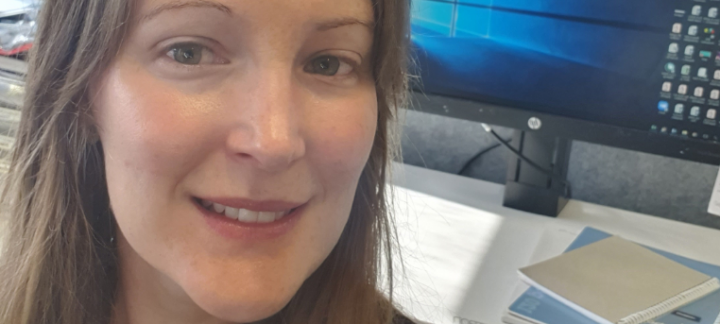The Mercy Health Accessibility Action Plan demonstrates our commitment to ensuring that our organisation is equitable, inclusive and accessible to the people who choose to work with us and the people for whom we care and to whom we offer services. We endeavour to acknowledge and celebrate our rich diversity and ensure that our organisation reflects the communities in which we work.
The Australian Network on Disability defines disability as “any condition that restricts a person’s mental, sensory or mobility functions. It may be caused by accident, trauma, genetics or disease. A disability may be temporary or permanent, total or partial, lifelong or acquired, visible or invisible.”
After consulting with patients, clients, residents with a disability, families and carers, and our Community Advisory Committee, Mercy Health’s Accessibility Action Plan focuses on three key areas — our care, our community; our people, our talent; and our settings, our spaces.
Our care, our community is about ensuring our people are well-equipped to meet the needs of patients, residents and clients with disability. We do this by providing a suite of education offerings, advocacy, consultation with consumers and external partnerships with organisations, such as the Australian Network on Disability with whom we participate in monthly member Roundtable meetings. Recruitment activities are also underway with the aim of appointing people with a lived experience of disability to Mercy Health’s Consumer Advisor register.
Our people, our talent focuses on actions and initiatives we are undertaking to create a workplace that is respectful, inclusive and reflects the communities we serve. This aims to build the capacity of hiring managers by updating the mandatory ‘manager recruitment and selection training’ to include support for them to confidently recruit talent from diverse groups, including people with disability. We have also made progress in our offerings of disability awareness education, monitoring internal and external engagement and ensuring our policies and procedures consider accessibility requirements.
Our settings, our spaces ensures the creation of inclusive spaces that are safe and welcoming, while encouraging the participation of our staff and the people for whom we care. This is achieved by incorporating principles of disability inclusion into capital projects. For example, Mercy Health recently engaged an Accessibility Consultant to ensure a capital redesign project optimised building accessibility. Audits by organisations such as Design for Dignity have been undertaken with positive outcomes. Processes are in place to ensure training and event venues adhere to accessibility checklists provided by the Australian Network on Disability. Lastly, Mercy Health is also focused on ensuring information and communication is accessible, by promoting the National Relay Service and including captions on videos produced by Mercy Health.
Mercy Health has made good progress in the first year of our Accessibility Action Plan, however the coronavirus pandemic has impacted on some actions. We look forward to progressing the important work being undertaken and reporting on our Accessibility Action Plan’s further success in 2021.
Seeing the ability in disability
Bethany Knight has been with Mercy Health for the past 10 years, and works as a psychiatric nurse in the Post Admission Support Team for Mercy Mental Health at Werribee Mercy Hospital.
She lives with Cerebral Palsy (CP), which is a physical disability that affects movement and posture, and believes that more organisations should be proactive in promoting the acceptance of disabilities in the workplace.
“I think if a workplace is accessible, it promotes staff diversity and safe workplaces for people with disabilities,” Bethany says. “Flexible working arrangements are needed for all employees to do their best work. I don’t want to be seen as someone’s ‘disabled colleague’, but it does help to be open with your team, so that support is there if it’s needed.”
Bethany is living proof that living with a disability places her in a valuable position at Mercy Health. “In my job we try not to define our clients by their mental health diagnoses, and I think that is the same for people with disabilities,” she says. “We live with disabilities, they don’t define us. Taking stigma away and seeing people as people, with unique gifts, and connecting from there, is important. Having CP actually helps me perform my role in some ways. I can empathise about certain challenges in a way that someone else may not be able to.”
Bethany is looking forward to seeing our Accessibility Action Plan being implemented throughout the organisation. “It’s important to know that Mercy Health has a commitment to improving access and to reducing and removing barriers experienced by people with disability, whether they be employees or people who access our services. I think the plan has some admirable goals, particularly in terms of training staff, making our spaces more accessible, partnering with organisations and opening up job opportunities.”



